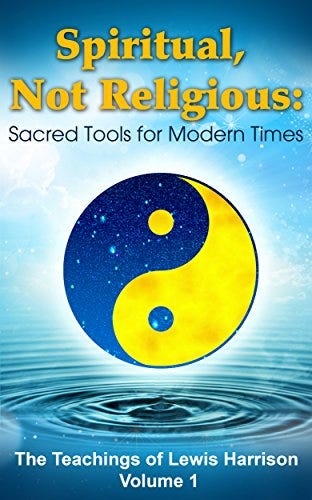Game Theory, & Self Improvement for Winning the Game of Life
Puzzles, play, gamer psychology, evolutionary biology, and risk-taking in teenagers
———————————————————
Note: For the next 10 days I will be teaching a series of Master Classes on Life Hacking and the Art and Science of Self-Improvement. During this time, you will be receiving reissues of the most popular newsletters I have sent you over the last 3 months. Enjoy! In addition, you are invited to review my YouTube channel for short videos on Self-Improvement Click here to begin your video education…
…
These newsletters serve a demographic of highly intelligent readers, with a passion for ideas, critical thinking, and unknown possibilities. Readers of my posts are usually really tired of being patronized elsewhere by fact-less, opinionated know-nothings, who complain about everything they don’t like, but lack a willingness to think about, find resources, or create life hacks, shortcuts, and solutions to fix what they don’t like.”
———————————————————
On a personal note: Please excuse grammatical errors, typos, repetition, and any general nonsense, and such in this post. I am getting a bit older now, and I have about 20,000 pages of information that must get published before I leave the mortal coil. I simply write and publish more than my humble editors are able to correct. If you find enough errors you are welcome to contact me about being an editor of my work.
Thanks for sharing this newsletter with your friends and associates
———————————————————
What is game theory? It is the study of systematic models of strategic interactions among rational individuals. It has applications in aspects of daily life as well as in all fields of social science, in relationships of all types, as well as logic, systems science, and computer science.
Though it may sound a little complex when first introduced to the concept we began thinking this way as toddlers. Most toddlers begin exploring puzzles and game thinking on some level early on. By their teen years, they may have mastered game-thinking or have been crushed by the competitive gamer-thinking of their peers.
Soon, the more skilled a game player a person is, as they move into adulthood, the more they will prosper.
Over time, the gamer-thinking process can become ever more complex and stressful. This is because, in part, the norms in our fast-paced digital world change so quickly, that there is a constant reshaping and redefining of many Life Games.
When viewed from the perspective of gamer-thinking, the immaturity of childhood is a time for experimental play without severe consequences. Here we can spend a great deal of time observing the actions of skilled others in coordination with oversight by, and activity with, our guardians.
In time we learn to re-interpret, imitate, and practice various forms of play (sports, games, and puzzles.) We also learn to survive and prosper as we explore the limits of our natural ability to interact with the world.
There was a point for many of us, usually in our teen years when our parents and guardians told us it was time to grow up and stop playing games.
Though this advice was certainly offered with good intentions, it was probably the worst advice they could have given us. What they needed to tell us was that “at some point, you will need to see the world through adult eyes, and it is now time to learn about adult games.”
We now know that human teens have much in common with their counterparts throughout the animal kingdom concerning gameplay and risk-taking. Research shows that a wide variety of species, fruit flies, pumas, and humans alike, must negotiate four competencies while entering adulthood:
1. safety,
2. socialization (navigating hierarchy),
3. how to court potential mates,
4. self-reliance (accessing food, shelter, water, etc.)
If a teen is not a skilled game-based thinker, life can quickly become a harsh reality. To make things more complex, research indicates that teens of many species are hard-wired to put themselves in peril as they experience challenges, setbacks, and triumphs. This often takes place as a type of rite of passage. (A biologist writes of California sea otters, who knowingly enter the great white–inhabited “triangle of death” off the coast).
This risky behavior among human teens might seem irrational but it actually makes evolutionary sense. Yes, the crucial, vulnerable, and exhilarating phase of life between childhood and adulthood can be rife with risks; yet ultimately, it is all about testing boundaries. By testing boundaries through excessive risky behavior, an adolescent will enter adulthood with a greater understanding of what is needed to survive and prosper. In the wild, all of these risk-takers may not survive.
The baby bear that explores the lion’s den may not make it out alive. For human teens who have some rational adult supervision, extremely reckless behavior can be nipped in the bud before any real damage is done. If a teen is provided with training in gamer-thinking, what was previously considered risky behavior, becomes much less so.
The Takeaway
We can all learn to life as a type of game; with a playing environment or field (a job, family, community, etc.) rules, scoring, competitors, and a chance to win. For the individual with an interest in spiritual exploration, learning how to live in the world effectively is essential to prospering mentally, emotionally, physically, as well as spiritually.
Different games involve different strategies, and processes, and many of these have specific names that describe them. Such as the one you are reading now….
——————————————————————————————————————
Fulfill Your Untapped Inner Potential By Getting Spiritual Mentoring with Lewis Harrison
If you have an interest in having a more mindful and meaningful life, schedule an interview with Lewis, and you can explore together how his Life Strategies and Spiritual Mentoring Method and Playbook can transform your life.
“Let's schedule a 15-minute interview to determine how I can serve you, and if you are a good fit for “Our Mentoring Program”. Email me at LewisCoaches@gmail.com
Lewis
Order the introductory book
by clicking the link below
https://www.amazon.ca/Spiritual-Not-Religious-Sacred-Modern-ebook/dp/B00I9H41C4





